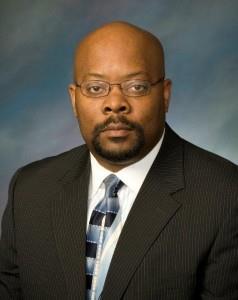- Council of the Great City Schools
- L.A. Cuts School Police to Boost Achievement, Des Moines Replaces Police
Digital Urban Educator - March 2021
Page Navigation
- New Education Secretary Will Address Urban Educators
- NYC Chancellor Steps Down, Albuquerque Names New Leader
- L.A. Cuts School Police to Boost Achievement, Des Moines Replaces Police
- Toronto School System Creates Anti-Asian Racism Resource for Teachers
- Council Offers Scholarships Named for an Astronaut
- Newspaper Spotlights Detroit Educators
- Legislative Column
- Dallas Leader Named Digital Superintendent of the Year
- East Baton Rogue Joins the Council
- Oakland Documentary Nominated for NAACP Image Award
- Dallas and San Antonio Leaders Honored
L.A. Cuts School Police to Boost Achievement, Des Moines Replaces Police
-
The Los Angeles and Des Moines school systems have moved forward with plans to shift at least some funds from school policing to programs that support student achievement and well-being, especially for students of color.
They join a growing number of the nation’s school districts opting to scale back the presence of law enforcement in schools in the wake of the police killing of George Floyd in Minneapolis last May.
In the Los Angeles Unified School District, the school board recently voted to reorganize the system’s police department and cut $25 million from that budget to fund a Black student achievement plan. The plan commits millions of dollars for academic support, social-emotional resources and new school climate and safety plans.
In a district news release, Board President Kelly Gonez said the investment “ensures we are actively working to promote equity across the district.”

Board member Mónica García said there was more work to be done. “Change is essential. Investments and behaviors must be different if we want outcomes to be different. Black students, parents, teachers and allies have demanded that we interrupt the school-to-prison pipeline,” she said.
A coalition of student advocacy groups praised the action, which followed their yearlong campaign to reimagine school policing—an effort that intensified in the aftermath of Floyd’s death.
In Iowa’s Des Moines Public Schools, the school resource officer program will be replaced with supports for students in a plan that has three levels.
“Now is a time for us all to re-consider the interests of our community and consider new approaches,” Des Moines Schools Superintendent Thomas Ahart said in a news release.
The first level has the aim of increasing input and decision-making among students, parents and community members. The second level focuses on restorative justice when there is wrong-doing – an intensive process that involves rebuilding relationships, accountability, repairing harm and ensuring learning.
The third level seeks to divert more serious violations of the law away from convictions, criminal records and placement in either the juvenile or adult court system. That plan will entail the cooperation of the city police department and community groups, according to the district.
“The decision to remove SROs does not represent less safety in schools,” said the district’s culture and climate director Jake Troja, adding the district intends to reinvest the dollars into building “better and more robust systems of support.”
The school board two years ago crafted a statement emphasizing the superintendent “shall not cause conditions or allow environments that contribute to the school-to-prison pipeline,” including SROs.
In California’s Fresno Unified School District, the renewal of several school law enforcement contracts was postponed amid pressure to remove police from schools. The district has commissioned a study including polling and focus groups to gauge opinions of students, parents, staff and police.
School Board President Kiesha Thomas said campus police officers have a history of profiling Black students. “Our African American boys are targeted many times more than other students,” she said, according to the Sacramento Bee.
According to Thomas, some teachers and administrators also have meted out harsh disciplinary actions to Black youth. The Bee noted data showing suspension rates of Black students in the district were higher than the state average in the 2018-19 year.
The city’s police chief, Paco Balderrama, supported the use of school resource officers, saying, “I’ve seen lives changed” and positive impacts, according to the newspaper.
 In its news coverage, the Bee profiled the strategies in place in Colorado’s Aurora Public Schools, including developing new discipline and intervention policies since 2013, investing in mental health supports, adopting a restorative justice practices with off-campus partners and redefining the role of campus police officers.
In its news coverage, the Bee profiled the strategies in place in Colorado’s Aurora Public Schools, including developing new discipline and intervention policies since 2013, investing in mental health supports, adopting a restorative justice practices with off-campus partners and redefining the role of campus police officers.The result has been fewer on-campus arrests, suspensions and expulsions and improvement in grades, test scores and graduation rates, Aurora officials told the Bee.
Aurora Schools Superintendent Rico Munn told the Bee that it is essential to have a “clear understanding” of when discipline should involve law enforcement. “We wanted to be in a place where we only called police as a matter of law when we had to,” Munn said. There are still police on campus, with a redefined role, he said.
Districts opting to phase out police presence on campuses in the last year include Oakland Unified School District, San Francisco Unified School District and Denver Public Schools, among others. Oakland has unveiled a new school safety plan that has created a culture and climate unit, where school security officers will focus less on security and give more attention to building relationships with students and families and creating a more supportive culture in the schools.
Media Contact:
Contact Name
Contact@email.com
(000) 000-0000
Contact Name
Contact@email.com
(000) 000-0000
Contact Name
Contact@email.com
(000) 000-0000
Media Contact:
Contact Name
Contact@email.com
(000) 000-0000
Contact Name
Contact@email.com
(000) 000-0000
Contact Name
Contact@email.com
(000) 000-0000


